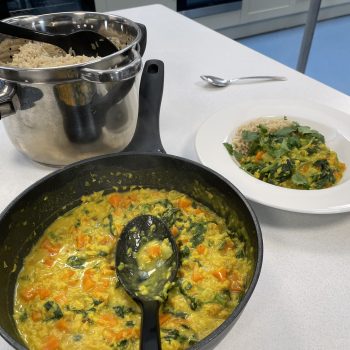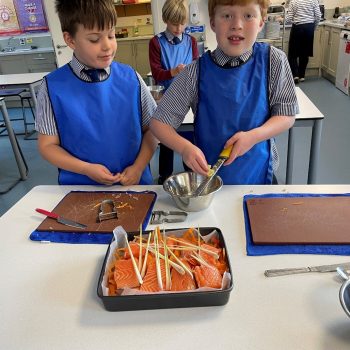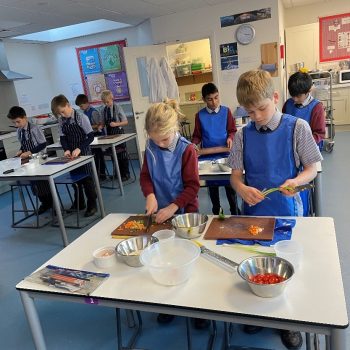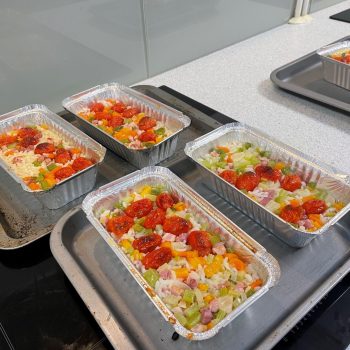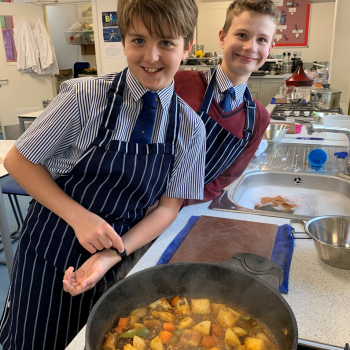Low Carbon Cooking
10 November 2022
This week in Cooking and Nutrition, our boys have been focusing on reducing their food carbon footprint. With COP27 taking place this week, their focus couldn’t have come at a better time. Boys in Years 4-8 have been cooking low carbon dishes and looking at ways in which they can be more sustainable. The next unit our boys will be learning about is Gut Microbiome, where they will be discussing the importance of significantly increasing the diversity of fibre they consume. Both topics go hand in hand. By increasing their fibre/plant intake and reducing their consumption of red meat and processed foods, they will not only improve their gut microbiome and overall health, but reduce their food carbon footprint as well.
Year 4 have been preparing baked pieces of sustainably sourced salmon on a bed of vegetables this week. The boys discussed the importance of sustainable fishing and looked at different fishing practices. As our boys used Asian flavours, such as lemongrass, they also thought about the air miles of some of the ingredients used and how this effected their food carbon footprint.
Using leftovers to create a great dish was the focus in Year 5. The boys have been encouraged to see what delicious meals they can make from leftovers in the fridge, such as a Sunday roast, surplus cooked rice or pasta and left-over bread. This week, our boys made baked Risotto using leftover vegetables and herbs that were perfectly edible.
Our Year 6 boys have whipped up a Cannellini Bean Gratin this week, and the dishes were absolutely delicious. Some of the boys ate their entire dish mid-morning! Having chopped onions, garlic, carrots and celery to sauté with tomato sauce, the boys added cannellini beans as their plant-based protein. They also created a crunchy breadcrumb topping which can be made with slightly stale bread that would normally go to waste. Then, they added nutritional yeast to the crust and discussed how this is a way of adding not just flavour, but B12 and Vitamin D.
In Year 7, Red Lentil and Coconut Dahl was on the menu. Red lentils are the quickest lentils to cook and make a great fibre rich, protein alternative, as well as being carbon neutral. Red lentil plants enrich the soil it grows in by adding nitrogen as well as helping our environment fix carbon into the ground. The boys counted 14 different types of plant fibre in this dish, which is great for a healthy gut microbiome and a cost-effective meal to make.
Lastly, Year 8 were tasked with making a Vegetable, Puy Lentil and Potato Balti with Red Rice. Our boys ground up spices, chopped up their vegetables and created a delicious plant based low carbon meal.
